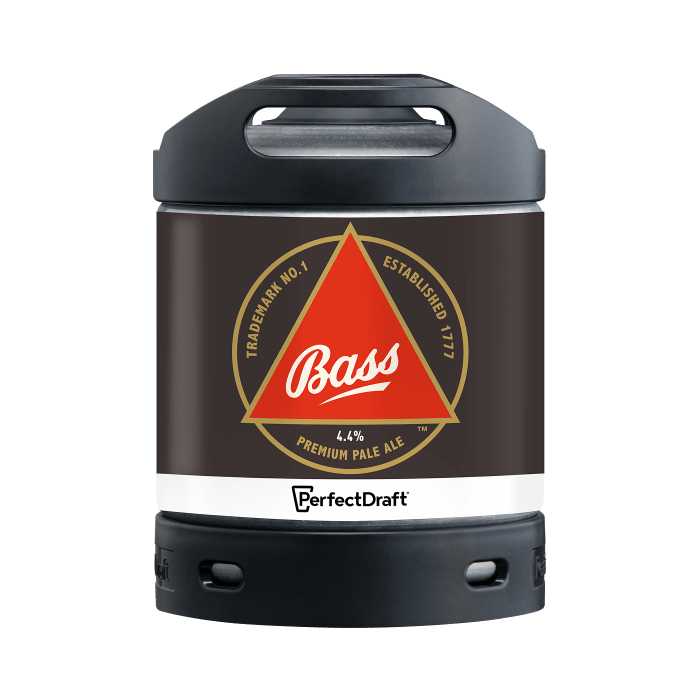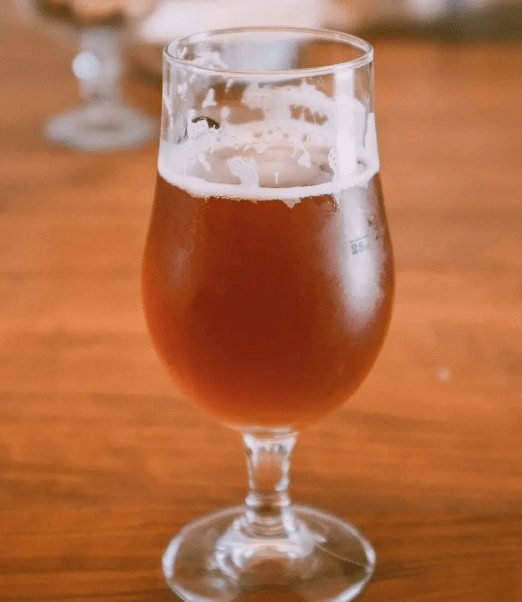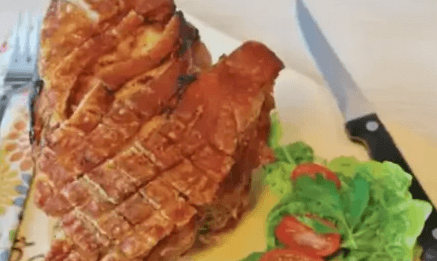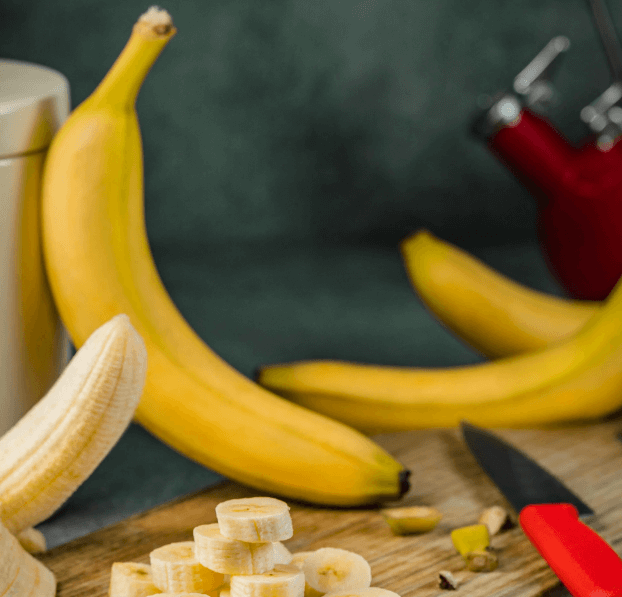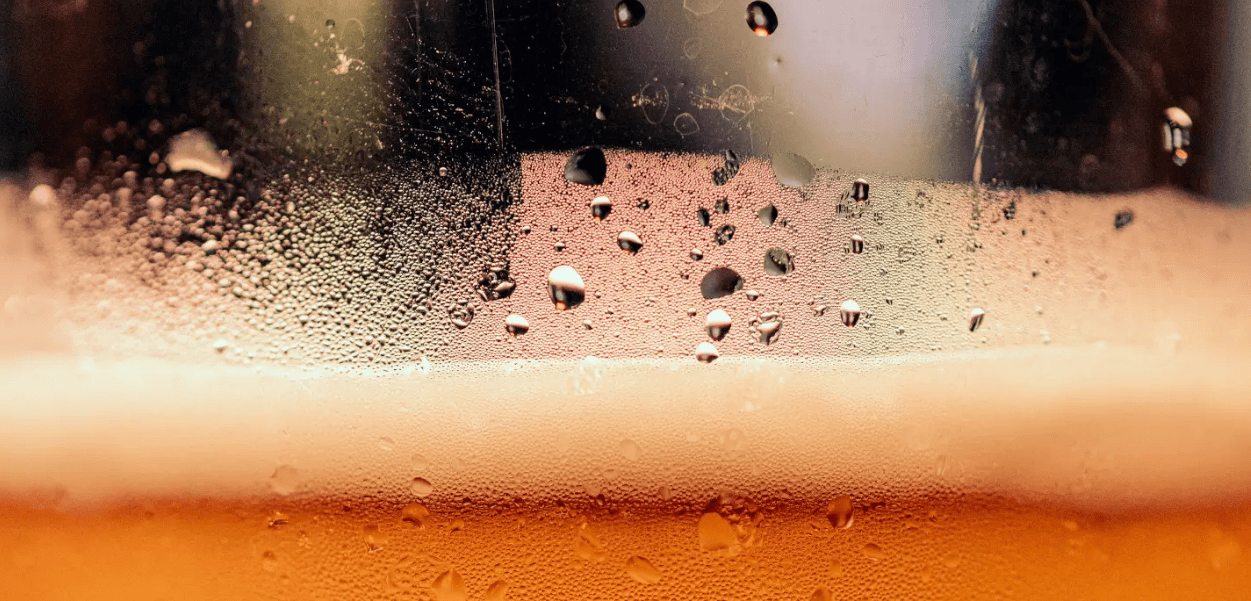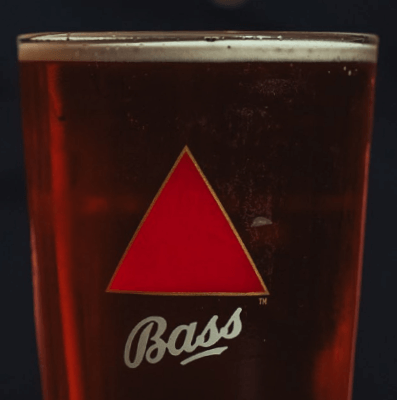
The Abbot of Burton brewed good ale, On Fridays when they fasted, But the Abbot of Burton never tasted his own As long as his neighbours lasted.
By 1295, Burton upon Trent was already famous for its beer. Monks at the Benedictine Abbey had been brewing since at least 1004, and by the 1300s their secret was clear: water. The mineral-rich wells of Burton allowed for more hops, healthier yeast and sparkling clarity. Nearly every brewer in the world – Argentina to Vietnam, Nigeria to Germany – now relies on ‘Burtonisation’ to replicate it. By stripping minerals from the water and re-adding calcium sulfate (gypsum) and calcium chloride, brewers achieve the conditions naturally found in Burton. The result: clear, sparkling beer. In short, Burton is the best place in the world to brew. No brand has carried Burton’s reputation further than Bass. Founded by William Bass in 1777, it went on to become the world's largest brewer, with its emblematic red triangle logo first protected as part of a label in 1876 and now considered as the UK's oldest known trademark. As we relaunch Bass on PerfectDraft, we brought together three gentlemen – in a pub in Burton, of course – to explain the appeal of a beer with a 248-year legacy.
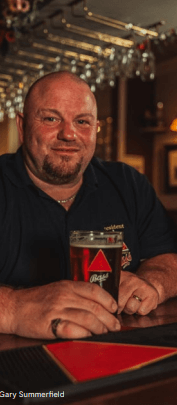
THE HONOURABLE ORDER
There are few beers on earth that have an Honourable Order of Drinkers. Bass does. Sat around a pub table in the Devonshire Arms, Burton, are Gary Summerfield and John Brearley of the Honourable Order of Bass Drinkers, beer historian Ian Webster and the pub’s landlord, Carl Stout.
For Gary, President of the Burton Division, Bass has always been more than just a pint. His father worked at Bass for 30 years. “He retired there. We used to come to the pubs in Burton, including the Coopers Tavern and The Elms. I'd sit in a pub with a shiny Bass and a packet of crisps.
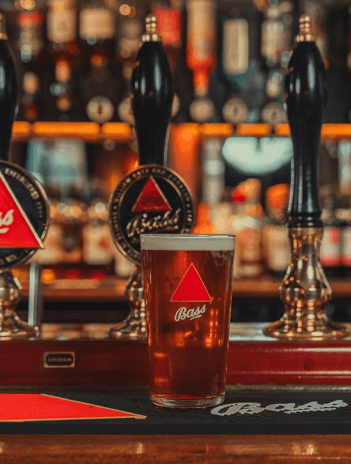
The order emerged on an annual pilgrimage to Bass and now has divisions in Manchester, Blackpool and Burton. “Being in the Honourable Order of Bass Drinkers is special, because I can go to Manchester or Blackpool and it’s home from home because everyone makes you feel so welcome. I love the camaraderie and the laughs; nothing too serious. Once you're in the order, you're definitely part of the family.”
For Gary, it’s also about the past. “I think what's special for me is you're drinking a part of history because it's been around since 1777.
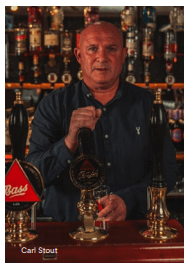
248 YEARS OF BASS
Ian Webster is a historian (thebeertonian.com) who was born "a stone's throw away from the Bass brewery". He has written two books on brewing in Burton. “The breweries were the skeleton of the town. They were part of the identity of the town. It's very difficult to imagine Burton upon Trent without beer and Bass,” he says. At its peak, “Bass was the biggest brewer, not only in Burton upon Trent, but in the world.” The rise was swift. In 1779, the brewery was exporting to North America; by
1784 to Russia too. And, although it wasn’t the first, nor the inventor, Bass became synonymous with India Pale Ale, exporting it to soldiers across the empire, including in India. By 1888, Bass employed more than
2,500 workers, and by 1902 it was producing 1.5 million barrels a year.
Close your eyes and think of Bass. What do you see? The red triangle. “The red triangle originally started out life as what we would call a cask mark,” Ian explains. “Back in the days when all the barrels were made of wood, they would brand the casks. And the red triangle was the branding for Bass.”
When the Trade Marks Registration Act came into force on 1 January 1876, “an unknown Victorian gentleman from Bass camped out on the steps of the trade mark office overnight, and he was the first person through the door. On that day, Bass registered three trademarks, including Bass and Co's Pale Ale, with a red triangle on it. The beer label is still known as Trademark No. 1, although the red triangle alone is
actually trademark 914.”
For Ian, Bass is more than a drink. “It's heritage in a glass. Every pint tells a story. It was served on the Titanic, it was served on the Royal Yacht Britannia, it was John Lennon’s favourite beer. And we know Napoleon enjoyed it.”
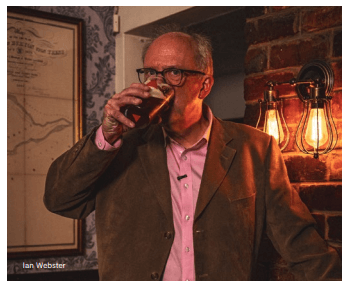
THE ENTHUSIASTS
John Brearley, national President of the Honourable Order of Bass Drinkers and owner of three pubs, remembers his first pint of Bass in The Unicorn in Manchester.
“Bass Pale Ale is a lovely, clean, clear, fresh beer that basically took the world by storm. It's got genuine provenance, heritage, history. It provides a sense of consistency and place. Bass, to me, it's just pleasure in a glass.”
Carl Stout, who has been landlord of one of the oldest pubs in Burton, The Devonshire Arms, agrees. “Bass survives, predominantly because it produces good beer. And the branding and the heritage; Bass oozes heritage.”
Now, for the first time, that heritage is available through PerfectDraft. A beer that once changed the world can now be poured perfectly at home, bright, clear, and brimming with history. Bass isn’t just a pint; it’s a badge of belonging. Taste your own – or do as the Abbot of Burton did and help your neighbours get through their keg first.
Tasting notes
Bass Pale Ale
4.4%
The Bass red triangle – known by beer lovers everywhere as a mark of originality. A symbol so important, it became part of Britain’s first ever trademark. Since then, the brewery has seen centuries come and go, moving with the times and evolving its brewing. But it's always stayed strong in its commitment to crafting a time-honoured taste: smooth and nutty with hints of plum and caramel, balanced with a moreish bitterness. Because true quality stands the test of time.
Temp: 7ºC
Also Discover : A postcard from Australia, The best new Beer Books and PerfectDraft Modelo Especial keg of beer !

